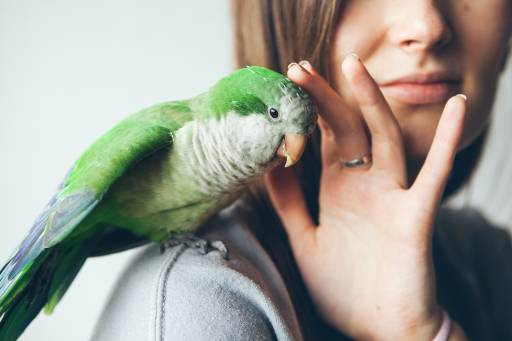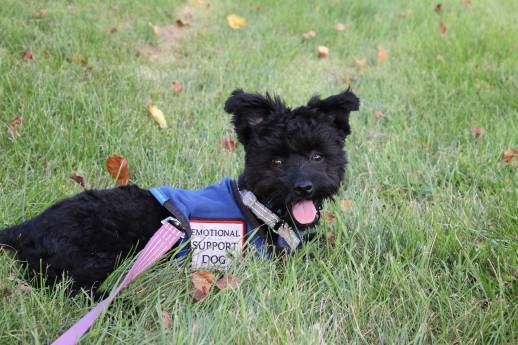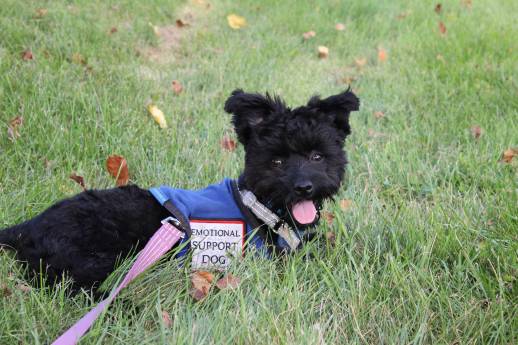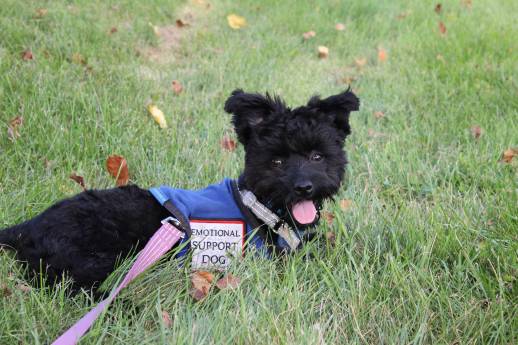Many people benefit from owning an emotional support animal. Emotional support animals (ESAs) are allowed in many public places and are typically dogs, cats, and other domesticated animals. This can include snakes, lizards, rabbits, ferrets, and other animals.
We help people get the proper documentation to make their pet an official Emotional Support Animal. Online approval in minutes - Housing & Travel letters.
ESAs have a variety of different uses for their owners. Some owners claim that their ESA has helped them with their anxiety or depression. Other owners say that they have used their ESA to help with a disability. As a whole, an ESA is an animal that provides emotional comfort to its owner. Someone with a disability or mental illness can obtain an ESA if it has been determined that the animal provides therapeutic benefits to the owner.
Can a Bird be an ESA?
Can a bird be an emotional support animal? Yes, as long as the owner can provide a letter from a doctor or a licensed mental health professional (LMHP) stating that the bird provides therapeutic benefits to the owner.
You may choose to have a bird as your ESA for many different reasons. Birds are often chosen as ESAs because they are very calm and quiet. This can be very helpful for someone who is having a hard time relaxing. Additionally, birds often do not require a lot of attention from their owners, which can be very beneficial for people with anxiety or other mental health issues. A bird can provide their owner with a sense of calmness and comfort that may not be present in the environment around them.
Does Your ESA Bird Need To Be Trained and Certified?
Unlike service animals, emotional support animals are not specifically trained to perform tasks for the benefit of an individual with a disability. They are also not restricted to dogs and miniature horses, and can instead come in many different forms so long as they provide comfort and support.
So, the answer is that no, you do not need to train your bird to be an ESA. All you’d need to ensure is that they can remain well-behaved when you’re taking them to public places, and that they won’t disturb other people. This is because certain places are allowed to deny access to your emotional support animal if they pose a threat to others.
We help people get the proper documentation to make their pet an official Emotional Support Animal. Online approval in minutes - Housing & Travel letters.

Review symptoms, medications & behavior to keep your pets healthy with a Vet Online in just minutes.
Ask a Vet Live NowHow to Get an ESA Bird
In order to obtain an ESA bird, you’ll need an ESA letter. An ESA letter can be provided by a licensed mental health professional (LMHP). This letter will provide details about the medical condition that your bird can help with, as well as how your bird can help you.
To obtain an ESA letter, you will need to visit a doctor or a licensed mental health professional (LMHP). You will have to go through a screen test with your doctor or LMHP. The purpose of this test is to ensure that your condition actually qualifies you for an emotional support animal. Keep in mind that this letter is only valid for 12 months, and you’d have to renew it to keep your ESA valid.

Julie
Julie is a graduate of the University of North Carolina, Wilmington, where she studied Animal science. Though contrary to the opinion of her parents she was meant to study pharmacy, but she was in love with animals especially cats. Julie currently works in an animal research institute (NGO) in California and loves spending quality time with her little cat. She has the passion for making research about animals, how they survive, their way of life among others and publishes it. Julie is also happily married with two kids.
Review symptoms, medications & behavior to keep your pets healthy with a Vet Online in just minutes.
Ask a Vet Live Now




